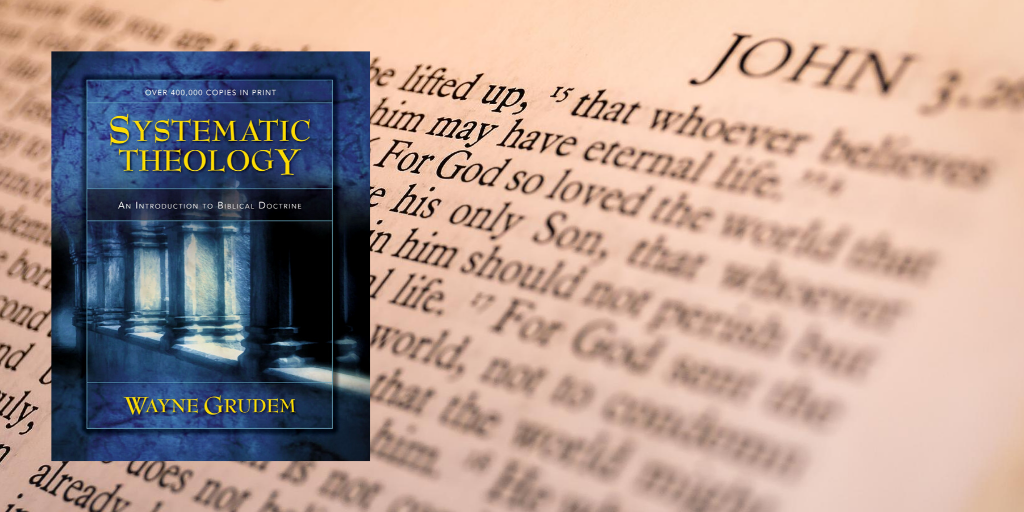Reading Systematic Theology with Wayne Grudem – What is the purpose of death in the Christian life? What happens to our bodies and souls when we die?
This post is part of a 50+ post series from the classic work by Wayne Grudem (PhD, Cambridge), Systematic Theology: An Introduction to Biblical Doctrine. The aim of each post is to provide an overview of each chapter in the book and related resources for each topic.
Synopsis of Chapter
In this chapter on death and the intermediate state, Wayne Grudem reviews important theological questions about death and what happens when people die. To begin, he show why death is not a punishment for Christians, but an outcome for living in a fallen world. He also shows how we should think about death: both our own deaths and also the deaths of others.
In the more expansive section, Grudem covers what happens when people die. He reviews the unbiblical doctrines of Purgatory and “soul sleep”. In addition, he shows how the Scripture teaches how unbelievers go to eternal punishment at death while believers immediately enter into God’s presence when they die.
Why Christians Die
Death is a part of our fallen situation. The Scripture declares, “There is therefore now no condemnation for those who are in Christ Jesus.” (Romans 8:1) Because of that, Christians are not punished when they die. Instead, in possible sickness and subsequent death we complete our discipline (Hebrews 12:5-11) and sanctification when we die. And though we may suffer and die, we understand life is more than living forever without tasting death. As John wrote of some future saints, “for they loved not their lives even unto death.” (Revelation 12:11). Christians may die, but God has a good purpose for allowing his people to die.
How to Think About Death
Since death is a major part of our world, we should aim for a biblical perspective on it. Regarding our own death, we should adopt the Apostle Paul’s dictum, “For to me to live is Christ, and to die is gain.” (Philippians 1:21). Life in this world is incomplete. Life with Christ after death is far better.
Regarding the death of Christian friends and relatives, we have a mix of sorrow and joy. On the one had, we are sorrowful that our fellow believers have departed this world. When Stephen was stoned, Acts 8:2 says, “Devout men buried Stephen and made great lamentation over him.” In the same way, we can weep when our friends and relatives pass away. However, our sorrow is not without hope. For we are assured of a final victory over death. Paul declared, “When the perishable puts on the imperishable, and the mortal puts on immortality, then shall come to pass the saying that is written: ‘Death is swallowed up in victory.’” (1 Corinthians 15:54). That is why we have confidence we will see our fellow Christians again when we join them in death.
What Happens When People Die?
There are two destinations for people when they die. One for believers in Christ and another destination for those who reject Christ.
When believers die, they immediately go to the presence of God. When Jesus spoke with the thief on the cross, he promised him, “Truly, I say to you, today you will be with me in paradise.” (Luke 23:43). There is no intermediate state like purgatory wherein your sins are “purged” from you. Purgatory is Roman Catholic doctrine without support in Scripture. Neither do believers simply fall asleep to be awakened in the resurrection, aka “soul sleep.” Instead, when believers die they are immediately transported to the presence of God.
When unbelievers die, they immediately go to eternal, conscious punishment. Jesus often spoke of the judgment of unbelievers. On one occasion, Christ told of a rich man in agony in the flames of judgment. Though this was bad, the worst part was there was no escape from the judgment. Jesus recounted Abraham’s words to the rich man, “And besides all this, between us and you a great chasm has been fixed, in order that those who would pass from here to you may not be able, and none may cross from there to us.” (Luke 16:26) When unbelievers die, they are immediately transported to a place of just punishment.
Application: Opportunity to Tell Others
Death is final. Whether one is a believer or an unbeliever, whenever you die you will not return to the land of the living. But for unbelievers it is worse. Because death seals an unbelievers fate to eternal punishment away from the presence of life and God.
The reality of the final death of unbelievers should be a motivator to speak about the only way to be saved from eternal punishment. “And there is salvation in no one else, for there is no other name under heaven given among men by which we must be saved.” (Acts 4:12) So let us boldly proclaim salvation to those who are stumbling toward eternal destruction.
“As it is my eager expectation and hope that I will not be at all ashamed, but that with full courage now as always Christ will be honored in my body, whether by life or by death. For to me to live is Christ, and to die is gain. If I am to live in the flesh, that means fruitful labor for me. Yet which I shall choose I cannot tell. I am hard pressed between the two. My desire is to depart and be with Christ, for that is far better. But to remain in the flesh is more necessary on your account.” (Philippians 1:20-24)
Special Terms
- annihilationism
- communion of saints
- death
- limbo
- limbus patrum
- purgatory
- Soul sleep
Resources: Wayne Grudem
- Wayne Grudem: Book: Systematic Theology: An Introduction to Biblical Doctrine
- Wayne Grudem: 148 Lectures on Systematic Theology
Related Resources
- OpenBible.info: Verses on Death
- Christopher Catherwood: A Grief Sanctified: How Reformed Theology Helps Deal with Death
- John Piper (Audio: 9:48): Does My Soul Sleep After Death?
- Don Stewart: Is There Any Biblical Support for Purgatory?
- Robert Peterson: Annihilation or Eternal Punishment?








